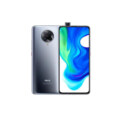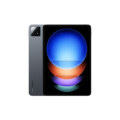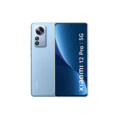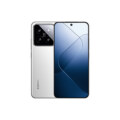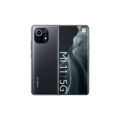Xiaomi Redmi Note 13 Pro





Specs
General
| Device Type | Xiaomi Redmi Phone |
| Announced | 21 September, 2023 |
| Released | 21 September, 2023 |
| Status | Available |
Design
| Water Resistant | IP54, dust and splash resistant |
| Dimensions | 161.1 x 75 x 8 mm |
| Weight | 188 g |
| Protection | Glass front (Gorilla Glass Victus), plastic frame, glass back |
| Colors | Midnight Black, Lavender Purple, Forest Green |
Display
| Refresh Rate | 120 Hz |
| Display Type Display Technology => A number of display technologies and types used in mobile phones => TFT (Thin Film Transistor), IPS (In-Place Switching), OLED (Organic Light Emitting Diode), AMOLED (Active-Matrix Organic Light-Emitting Diode), Super AMOLED (an even advanced version of AMOLED), Resistive Touchscreen (Resistive touchscreens contain two layer of conductive material with a very small gap between them which acts as a resistance), Capacitive Touchsceen (Capacitive touchscreen technology consists of a layer of glass coated with a transparent conductor) | AMOLED |
| Size | 6.67 Inches |
| Resolution | 1220 x 2400 Pixels |
| Display Colors Display Colors is refers to the number of different shades of colors that the screen is capable of displaying => 64K colors, 256K colors and 16 million colors, Obviously 16M is highest available range of colors and better than others. | 68B |
| Pixel Density Pixel Density (PPI) is refers to the concentration of pixels on a particular display, measured in pixels per inch (ppi). Pixel density is calculated by dividing the diagonal pixel resolution of a display by its diagonal size, higher pixel density better display quality. | ~404 ppi |
| Touch Screen | Capacitive Touchscreen, Multitouch |
| Display Protection Display Protection => Gorilla Glass is a special alkali-aluminosilicate glass shield with exceptional damage resistance that helps protect mobile displays from scratches, drops, and bumps of everyday use, It is always better to go for a smartphone with Gorilla Glass for that added protection and peace of mind. | Corning Gorilla Glass Victus |
| Features | Dolby Vision, 500 nits (typ), 1200 nits (HBM), 1800 nits (peak) |
| Secondary Display | No |
Camera
| Front Camera | 16 MP, f/2.4, (wide), 1/3.06", 1.0µm |
| Camera Setup | Triple |
| Main Camera Camera is able to capture photographs and usually videos, The most important characteristics of a camera are the resolution (measured in megapixels), lens focus type (fixed or automatic), higher megapixel cameras are known to capture higher quality photos, but not always a good measurement of the photos quality. |
200 MP, f/1.7, 23mm (wide), 1/1.4", 0.56µm, multi-directional PDAF, OIS 8 MP, f/2.2, 118˚ (ultrawide) 2 MP, f/2.4, (macro) |
| Image | 12000 x 9000 pixels |
| Video | 1080p@30/60fps |
| Camera Features | Geo-tagging, Phase detection, touch focus, HDR, Panorama |
| Flash Flash Light => There is commonly two types of flash lights are used in camera mobile phones, LED Flash (LED flash offers lower power consumption with drive circuitry that takes up very little room, LEDs can be strobed faster than any other light source), Xenon Flash (xenon flash produces an extremely intense full-spectrum white light for a very short duration) | Dual-LED dual-tone flash, HDR, panorama |
Hardware
| Operating System OS => Every computer system run on a base software called Operating System (OS). Operating System controls all basic operations of the computer (such as smartphone, PDAs, tablet computers and other handheld devices). The Operating System allows the user to install and run third party applications (apps), apps are used to add new functionality to the device. | Android 13 |
| Chipset Chipset is a group of integrated circuits designed to perform one or a more dedicated functions, often with real time computing constraints, Popular smartphones are equipped with more advanced embedded chipsets that can do many different tasks depending on their programming. | Qualcomm Snapdragon 7 Series or MediaTek Dimensity |
| CPU CPU (Central Processing Unit) mostly known as processors, CPU processes instructions in order to carry out certain functions that make your device operate properly. Processors are often described as the brain of computers, smartphones and tablets, Smartphones and tablets rely on processors to carry out their every task, Processors are an incredibly important factor in selecting any type of computing device, including your smartphone. | Octa-core (2 x 2.2 GHz Cortex-A76 + 6 x 2.0 GHz Cortex-A55) |
| Architecture | 64 bit |
| Fabrication | 4 nm |
| GPU GPU (Graphics Processing Unit) is a single-chip processor designed to rapidly manipulate and alter memory to accelerate the creation of images in a frame buffer intended for output to a display, This includes things such as lighting effects, object transformations, and 3D motion. | Adreno 710 |
| RAM (Memory) RAM (Random Access Memory) is a type of computer memory that can be accessed randomly, any byte of memory can be accessed without touching the preceding bytes that allows information to be stored and accessed quickly from random locations. RAM is the most common type of memory found in computer systems, smartphones, tablets and other electronic devices. | 8 GB |
| Internal Storage Internal Storage is a data storage space (flash memory) mostly used in smartphones, tablets and other electronic devices where operating system, apps, music, photos, videos, files and other user data Is stored. | 256 GB |
| Card Slot Memory Card Slot is a special slot for inserting a memory card. Memory cards allow you to expand the phone's built-in memory, A memory card (sometimes called a flash memory card or a storage card) is a small storage medium used to store data such as text, pictures, audio, and video, for use on small, portable or remote computing devices such as mobile phones, mp3 players, digital cameras. | |
| Sensors Sensors are electronic components that detects and responds to some type of input from the physical environment. The specific input could be light, heat, motion, moisture, pressure and location, The output is generally a signal that is converted to use in computing systems, a location sensor, such as a GPS receiver is able to detect current location of your electronic device. | Accelerometer, Compass, Fingerprint (under display, optical), Gyro, Proximity, Virtual proximity sensing |
Network
| SIM TYPE SIM (Subscriber Identity Module) is a small card that contains mobile network subscriber's account information. This allows the phone using the card to attach to a mobile network. The SIM card is most commonly associated with GSM and UMTS mobile networks. Moving a SIM card from one phone to another allows a subscriber to switch mobile phones without having to contact their mobile network carrier. SIM cards can also be used by a phone to store limited amounts of data, such as phone numbers and text messages. | Nano SIM |
| SIM Technology | Dual SIM (Nano-SIM, dual standby) |
| 2G Network | GSM 850 / 900 / 1800 / 1900 |
| 3G Network | HSDPA 850 / 900 / 1700(AWS) / 1900 / 2100 |
| 4G Network | LTE band 1(2100), 3(1800), 5(850), 7(2600), 8(900), 40(2300), 41(2500) |
| 5G Network | SA/NSA |
Multimedia
| FM Radio | |
| Stereo Speakers | YES |
| Loudspeaker | YES |
| Audio Jack | 3.5mm jack |
| Audio Features | Hi-Res Audio, 24-bit/192kHz |
Connectivity
| Wi-fi Wi-Fi is a popular wireless networking technology using radio waves to provide high-speed network connections that allows devices to communicate without cords or cables, Wi-Fi is increasingly becoming the preferred mode of internet connectivity all over the world. | Wi-Fi 6 (802.11 a/b/g/n/ac/ax) |
| Bluetooth Bluetooth is a wireless communications technology for exchanging data between mobile phones, headsets, computers and other network devices over short distances without wires, Bluetooth technology was primarily designed to support simple wireless networking of personal consumer devices. | 5.2, A2DP, LE |
| GPS GPS The Global Positioning System is a satellite-based radio navigation system, GPS permits users to determine their position, velocity and the time 24 hours a day, in all weather, anywhere in the world, In order to locate your position, your device or GPS receiver must have a clear view of the sky. | A-GPS, GLONASS, BDS, GALILEO |
| USB | USB Type-C 2.0, USB On-The-Go |
| EDGE EDGE (Enhanced Data GSM Environment) is a wireless network technology generally considered the next step in the 2G network offers data transfer rates up to four times faster than ordinary GSM networks, Generally, EDGE is used for the purpose of wireless data transfer, such as sharing pictures and videos or browsing the Internet via a mobile phone connection. | |
| GPRS GPRS (General Packet Radio Service) is a packet oriented mobile data service on the 2G and 3G cellular communication system's global system for mobile communications (GSM), Generally, GPRS is used for the purpose of wireless data transfer, such as sharing pictures and videos or browsing the Internet via a mobile phone connection. | |
| Speed | 3G (HSPA 42.2/5.76 Mbps), 4G LTE |
| Wi-fi Hotspot | |
| NFC NFC (Near field communication) is a set of standards for smartphones and similar devices to establish peer-to-peer radio communications with each other by touching them together or bringing them into proximity, usually no more than a few inches. |
Features
| Messaging | SMS(threaded view), MMS, Email, Push Mail, IM |
| Web Browser Web Browser => a web browser is a software application used to locate, retrieve and display content on the World Wide Web, including Web pages, images, video and other files, The primary function of a web browser is to render HTML, the code used to design or markup webpages. | HTML5 |
| Games | Built-in + Downloadable |
| Torch |
Battery
| Battery Type Battery Type => Cell phones run on various kinds of batteries depending on the manufacturer, phone size or shape and features. There are basically four types of cell phone batteries => Lithium Polymer, Lithium Ion, Nickel Metal Hydride and Nickel Cadmium. | Li-Ion (Lithium Ion) |
| Capacity Battery Capacity is a measure (typically in Amp-hr) of the charge stored by the battery, and is determined by the mass of active material contained in the battery. The battery capacity represents the maximum amount of energy that can be extracted from the battery under certain conditions. | 5000 mAh |
| Placement | Non-removable |
| Wireless Charging Wireless Charging (Inductive Charging) uses an electromagnetic field to transfer energy between two objects. This is usually done with a charging station. Energy is sent through an inductive coupling to an electrical device, which can then use that energy to charge batteries or run the device. | No |
| Standby Standby Time is the total amount of time that you can leave your is fully charged, turned on and ready to send and receive calls or data transmissions before completely discharging the battery. | Up to 2 days (Expected) |
| Talk Time Talk Time is the longest time that a single battery charge will last when you are constantly talking on the phone under perfect conditions, Ambient temperature and highly dependent on the cellular network environment such as the distance to the closest cell network tower. | Up to 24 hours (Expected) |
| Music Play | Up to 90 hours (Expected) |
| Extra |
Fast battery 67W wired 50% in 16 min 100% in 46 min (advertised) |
Xiaomi Redmi Note 13 Pro: Detailed Review
The Xiaomi Redmi Note 13 Pro, released in 2023, continues Xiaomi’s tradition of delivering powerful mid-range smartphones with premium features at an affordable price. With an upgraded camera system, a high-refresh AMOLED display, and a robust battery, the Redmi Note 13 Pro offers excellent value for users looking for a solid all-rounder. Below is a detailed review of its key features, performance, and a breakdown of its pros and cons.
Key Specifications
- Display: 6.67-inch AMOLED, 120Hz refresh rate, FHD+ (2400 x 1080) resolution
- Processor: Qualcomm Snapdragon 7 Gen 1
- RAM: 6GB, 8GB, or 12GB LPDDR5
- Storage: 128GB, 256GB, or 512GB UFS 3.1 (expandable via microSD)
- Rear Cameras:
- 200 MP (wide, f/1.8, OIS)
- 8 MP (ultrawide, f/2.2, 120-degree FOV)
- 2 MP (macro, f/2.4)
- Front Camera: 16 MP (f/2.4)
- Battery: 5100 mAh, 67W fast charging
- Operating System: MIUI 14 based on Android 13
- Other Features: 5G support, In-display fingerprint sensor, Dual stereo speakers, IP53 rating (dust and splash resistance)
Design & Build Quality
Design:
The Xiaomi Redmi Note 13 Pro maintains Xiaomi’s sleek, modern design language. It features a glass back with curved edges that make it comfortable to hold, while the metal frame adds durability. The minimalist design is accentuated by a clean camera bump on the back, which houses the triple-camera system.
Build Quality:
The phone is sturdy, with an IP53 rating for dust and splash resistance. The flat AMOLED screen on the front is protected by Corning Gorilla Glass 5, adding to the device’s durability. It has a slim profile despite the large battery and fits comfortably in most hands, though one-handed use can be tricky due to its size.
Colors:
The Xiaomi Redmi Note 13 Pro is available in multiple colors, including:
- Midnight Black
- Sky Blue
- Polar White
Display
Specifications:
- Size: 6.67-inch AMOLED
- Resolution: FHD+ (2400 x 1080)
- Refresh Rate: 120Hz
- Brightness: 900 nits peak
- Color Support: 1 billion colors (10-bit panel), HDR10+
Performance:
The display is one of the standout features of the Xiaomi Redmi Note 13 Pro. The 6.67-inch AMOLED panel provides vibrant colors, deep blacks, and excellent contrast, making it great for media consumption and gaming. The 120Hz refresh rate ensures smooth scrolling and an overall fluid experience. HDR10+ support allows for enhanced contrast and color depth when watching compatible content on streaming platforms like Netflix and YouTube.
Outdoor visibility is also strong, thanks to the 900-nit peak brightness, ensuring that the screen remains legible even in bright sunlight.
Performance
Processor & RAM:
Powered by the Qualcomm Snapdragon 7 Gen 1 chipset, the Xiaomi Redmi Note 13 Pro delivers solid performance for a mid-range device. The octa-core processor is paired with up to 12GB of LPDDR5 RAM, allowing for smooth multitasking and efficient app handling. Whether you’re gaming, browsing, or switching between apps, the device remains snappy and responsive.
The Adreno 642L GPU handles gaming well, with titles like PUBG Mobile and Call of Duty: Mobile running smoothly at medium to high settings.
Storage:
With UFS 3.1 storage, the phone offers fast read and write speeds, reducing load times for apps and games. The phone comes in 128GB, 256GB, and 512GB variants, with the option to expand storage via microSD.
Camera System
Main Camera: 200 MP (f/1.8, OIS)
The 200 MP primary camera is the highlight of the Xiaomi Redmi Note 13 Pro. It captures incredibly detailed images, especially in well-lit conditions, and produces vibrant colors. The optical image stabilization (OIS) ensures that images remain sharp even in shaky conditions.
Ultrawide Camera: 8 MP (f/2.2, 120-degree FOV)
The 8 MP ultrawide lens is decent for capturing wide landscapes and group shots. While it doesn’t produce the same level of detail as the main camera, it handles daylight conditions well. In low light, images tend to lose some clarity.
Macro Camera: 2 MP (f/2.4)
The 2 MP macro camera allows for close-up shots, though its quality is average. It’s fun to use for niche photography but lacks the sharpness and detail of higher-resolution macro lenses.
Night Mode:
The camera system’s night mode significantly improves low-light photography. It brightens up dark scenes while preserving details and reducing noise. The 200 MP sensor, combined with the software optimizations, delivers clear and balanced images in challenging lighting conditions.
Front Camera: 16 MP (f/2.4)
The 16 MP selfie camera performs well in good lighting, producing detailed and natural-looking selfies. However, it struggles a bit in low light, with some noise creeping into the images.
Battery Life
Capacity: 5100 mAh
The large 5100 mAh battery ensures that the Xiaomi Redmi Note 13 Pro easily lasts a full day of heavy use. Even with intensive tasks like gaming, video streaming, and multitasking, the battery holds up well, making it a reliable option for users who need all-day power.
Charging: 67W fast charging
With 67W fast charging, the phone can charge from 0 to 50% in around 15 minutes, and a full charge takes less than 50 minutes. The fast charging capabilities make it convenient for users who are always on the go and need quick top-ups throughout the day.
Software & Features
Operating System:
The Xiaomi Redmi Note 13 Pro runs on MIUI 14, which is based on Android 13. MIUI is feature-rich and customizable, offering a variety of themes, gestures, and additional tools. It has improved over the years, but some users may find the amount of bloatware pre-installed on the device to be annoying.
Security:
The in-display fingerprint sensor is fast and reliable, providing an easy way to unlock the phone. Face unlock is also available but is less secure than the fingerprint option.
Other Features:
- Dual Stereo Speakers: The stereo speakers provide a balanced audio experience with decent bass and clear mids, making media consumption more immersive.
- 5G Connectivity: The Xiaomi Redmi Note 13 Pro supports 5G, making it future-proof for faster mobile network speeds.
- IP53 Rating: Dust and splash resistance provide basic protection, though it’s not fully waterproof.
Pros & Cons
Pros:
- Excellent Display: The 120Hz AMOLED panel offers vibrant colors, deep blacks, and smooth performance.
- Powerful Camera: The 200 MP main camera captures detailed images with great color accuracy, especially in well-lit environments.
- Long Battery Life: The 5100 mAh battery provides excellent endurance, lasting a full day of heavy use.
- Fast Charging: 67W fast charging allows for quick top-ups, getting the phone to 50% charge in about 15 minutes.
- Solid Performance: The Snapdragon 7 Gen 1 and up to 12GB RAM handle multitasking, gaming, and everyday tasks smoothly.
- 5G Support: Future-proofed with 5G connectivity for faster network speeds.
- Great Value for Money: High-end features at a competitive price make this phone a great value proposition.
Cons:
- Average Ultrawide and Macro Cameras: The ultrawide and macro lenses are decent but don’t match the quality of the main camera.
- MIUI Bloatware: MIUI comes with a lot of pre-installed apps, which can clutter the experience for some users.
- No Full Waterproofing: The IP53 rating offers some protection, but the phone isn’t fully waterproof, so users need to be cautious around water.
- Large Size: The phone’s large screen size can make one-handed use difficult for some users.

Conclusion
The Xiaomi Redmi Note 13 Pro offers a fantastic balance between performance, display quality, camera capabilities, and battery life, all at an affordable price point. With its 120Hz AMOLED display, Snapdragon 7 Gen 1 processor, and 200 MP main camera, it provides a premium experience in a mid-range device. It’s a great choice for users who want a capable smartphone for everyday use, photography, gaming, and media consumption, without spending flagship-level money.
While there are some minor drawbacks, such as the average performance of the secondary cameras and the presence of bloatware in MIUI, these are outweighed by the phone’s strengths. For those seeking value for money with a strong feature set, the Redmi Note 13 Pro is an excellent option.
Review
Disclaimer Note
All prices in Pakistan is updated daily from the price list provided by local shops and dealers but we can not guarantee that the information / price on this page is 100% correct (Human error is possible), always visit your local shop for exact cell phone cost & rate.
